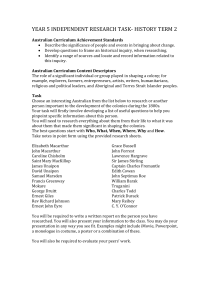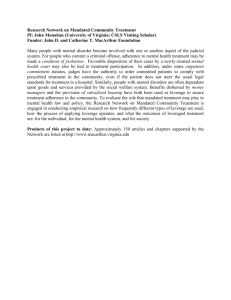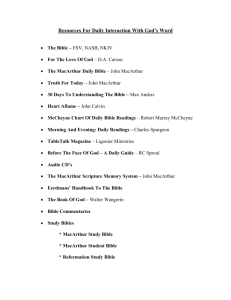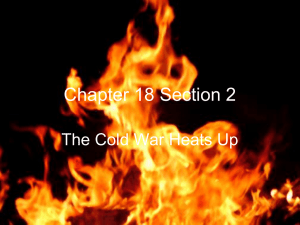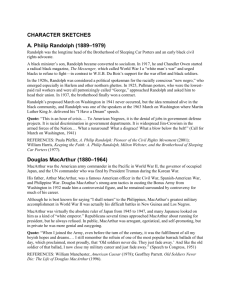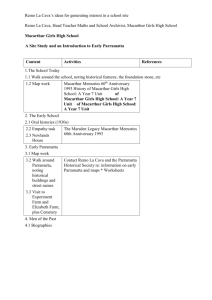MacArthur Drake & Assoc. v. Tower Crossing Associates
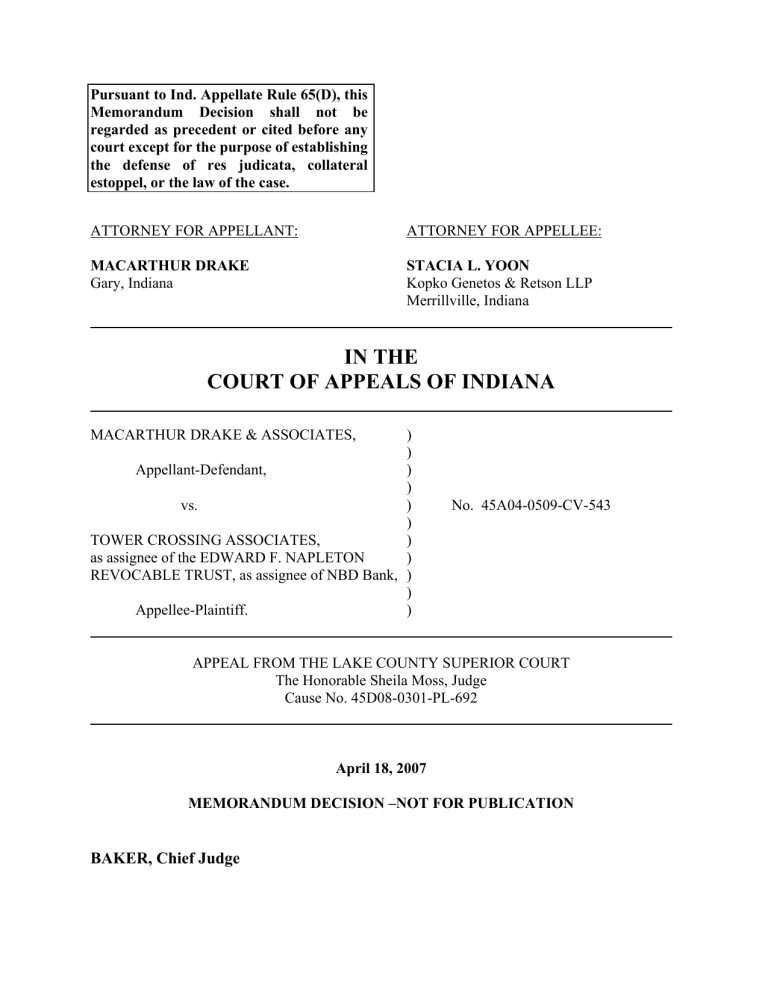
Pursuant to Ind. Appellate Rule 65(D), this
Memorandum Decision shall not be regarded as precedent or cited before any court except for the purpose of establishing the defense of res judicata, collateral estoppel, or the law of the case.
ATTORNEY FOR APPELLANT:
MACARTHUR DRAKE
Gary, Indiana
ATTORNEY FOR APPELLEE:
STACIA L. YOON
Kopko Genetos & Retson LLP
IN THE
COURT OF APPEALS OF INDIANA
MACARTHUR DRAKE & ASSOCIATES, )
)
Appellant-Defendant, )
) vs. ) No. 45A04-0509-CV-543
TOWER CROSSING ASSOCIATES, as assignee of the EDWARD F. NAPLETON
)
)
)
REVOCABLE TRUST, as assignee of NBD Bank, )
)
Appellee-Plaintiff. )
APPEAL FROM THE LAKE COUNTY SUPERIOR COURT
The Honorable Sheila Moss, Judge
Cause No. 45D08-0301-PL-692
April 18, 2007
MEMORANDUM DECISION –NOT FOR PUBLICATION
BAKER, Chief Judge
Appellant-defendant Macarthur Drake & Associates (Macarthur) appeals from the trial court’s denial of its motion to correct error in the eviction action appellee-plaintiff Tower
Crossing Associates (Tower) brought against Macarthur in small claims court. We rephrase
Macarthur’s arguments as follows: (1) the trial court erred by denying Macarthur’s motion to correct error because Tower did not properly serve Macarthur notice of the damages hearing and the damages award was excessive, and (2) the trial court erred by not maintaining a record of the damages hearing. Finding no error, we affirm the judgment of the trial court.
FACTS
Tower filed a complaint for eviction against Macarthur on January 24, 2003, regarding commercial property in Gary that Macarthur occupied (the Office). The trial court held a possession hearing on June 10, 2004, and the parties agreed that Macarthur would pay Tower
$7,000 during June 2004 to remain in the Office until August 1, 2004.
In open court on October 13, 2004, the trial court set a damages hearing for October
28, 2004. The next day, Tower served notice of the damages hearing on Macarthur’s attorney, Macarthur Drake (Drake), at his personal residence. When Macarthur failed to appear at the hearing, the trial court entered a default judgment and awarded Tower damages in the amount of $8,253.92.
On December 22, 2004, Macarthur filed a motion to set aside the default judgment, which the trial court denied on February 18, 2005. On March 21, 2005, Macarthur filed a motion to correct error. The trial court held a hearing on April 28, 2005, and Macarthur failed to appear. The trial court denied Macarthur’s motion to correct error that same day.
2
Macarthur filed a notice of appeal on May 31, 2005, and an alias notice of appeal on August
15, 2005. On August 25, 2005, the trial court filed an affidavit attesting that there are no transcripts for any of the above proceedings.
The chronological case summary (CCS) in the record on appeal indicates that
Macarthur filed its motion to correct error on March 24, 2005—three days after the thirty-day time limit set forth by the Indiana Rules of Trial Procedure. Appellant’s App. p. 1; Ind. Trial
Rule 59. As a result, Tower filed a motion to dismiss Macarthur’s appeal on January 5, 2006, arguing that our court did not have jurisdiction over the case. In response, Macarthur submitted evidence that it had, in fact, filed its motion to correct error on March 21, 2005, namely, a handwritten note beneath the motion’s March 24, 2005, file stamp that reads “C/M
P/M 3/21/05.” On May 26, 2006, a motions panel of our court denied Tower’s motion to dismiss, finding that Macarthur had provided adequate proof that its motion to correct error was timely filed on March 21, 2005. It is unclear whether this order was omitted from the case record as it was transmitted to the writing panel or if the order was erroneously overlooked; however, we subsequently issued a memorandum decision and dismissed
Macarthur’s appeal as untimely. Macarthur Drake & Assoc. v. Tower Crossing Assoc., No.
45A04-0509-CV-543, slip op. at 3 (Ind. Ct. App. Nov. 6, 2006). We now vacate that decision.
On December 6, 2006, Macarthur attempted to file a petition for rehearing. On
December 13, 2006, the clerk’s office sent Macarthur a notice of defect and granted
Macarthur “ten (10) business days from the date of [the] order” to correct the defect and
3
refile the petition. Appellant’s Motion for Reconsideration at Ex. B. Macarthur corrected the defect and refiled its petition for rehearing on December 27, 2006. The refiled petition for rehearing made no reference to the clerk’s ten-day extension and the notice of defect order was not attached to the petition as it was transmitted to the court. Therefore, we denied
Macarthur’s petition for rehearing on February 13, 2007, concluding that the petition was untimely.
On March 14, 2007, Macarthur filed a motion to reconsider and/or clarify our
February 13, 2007, denial of its petition for rehearing. In the motion, Macarthur highlights the above missteps and asks that we decide its case on the merits. In light of this unique procedural history and our preference to decide cases on their merits, we now address
Macarthur’s claims.
DISCUSSION AND DECISION
As we consider Macarthur’s arguments, we initially observe that small claims actions are “informal, with the sole objective of dispensing speedy justice between the parties according to the rules of substantive law.” Ind. Small Claims Rule 8(A). Judgments in small claims actions are subject to review as prescribed by relevant Indiana rules and statutes.
Counceller v. Ecenbarger, Inc., 834 N.E.2d 1018, 1021 (Ind. Ct. App. 2005). When reviewing claims tried to the bench without a jury, the reviewing court shall not set aside the judgment unless clearly erroneous, and due regard shall be given to the opportunity of the trial court to judge the credibility of the witnesses. Id. In determining whether a judgment is clearly erroneous, we do not reweigh the evidence or determine the credibility of witnesses
4
but consider only the evidence that supports the judgment and the reasonable inferences to be drawn therefrom. Id. A deferential standard of review is particularly important in small claims actions, where trials are informal and have the sole objective of dispensing speedy justice between the parties according to the rules of substantive law. Hill v. Davis, 832
N.E.2d 544, 548 (Ind. Ct. App. 2005).
I. Denial of Macarthur’s Motion to Correct Error
Macarthur’s appeal comes to us following the trial court’s denial of two motions: (1) the trial court’s February 18, 2005, denial of Macarthur’s motion to set aside the default judgment, and (2) the trial court’s April 28, 2005, denial of Macarthur’s motion to correct error. Macarthur made the same arguments in both motions, namely, that the trial court erred by entering a default judgment in favor of Tower and awarding Tower $8,253.92 in damages.
Because Macarthur appeals following the trial court’s motion to correct error, we will address his arguments in the context of that motion.
A trial court is vested with broad discretion to determine whether it will grant or deny a motion to correct error. Precision Screen Mach., Inc. v. Hixson, 711 N.E.2d 68, 70 (Ind.
Ct. App. 1999). A trial court has abused its discretion only if its decision is clearly against the logic and effect of the facts and circumstances before the court or the reasonable inferences that may be drawn therefrom. Id. The trial court’s decision comes to us cloaked in a presumption of correctness, and the appellant has the burden of proving that the trial court abused its discretion. Id. In making our determination, we may neither reweigh the evidence nor judge the credibility of witnesses. Volunteers of Am. v. Premier Auto
5
Acceptance Corp., 755 N.E.2d 656, 658 (Ind. Ct. App. 2001).
A. Notice of Damages Hearing
Macarthur first argues that the trial court improperly denied its motion to correct error because Macarthur did not have adequate notice of the damages hearing. Specifically,
Macarthur argues that Tower improperly served notice of the hearing on Drake at his personal residence instead of at the Office.
Indiana Rule of Trial Procedure 5 provides that service shall be made upon a party represented by an attorney of record by serving “such attorney unless service upon the party himself is ordered by the court. Service upon the attorney or party shall be made by delivering or mailing a copy of the papers to him at his last known address.” T.R. 5(B). Rule
5(B)(1)(C) provides various ways to deliver documents to the attorney, specifying that if an office is closed, service may be made by “leaving it at [the attorney’s] dwelling house or usual place of abode with some person of suitable age and discretion then residing therein.”
Here, Macarthur argues that Tower improperly served Drake at his personal residence instead of at the Office. As support for its argument, Macarthur notes that Drake listed the
Office as his address when he filed his appearance with the trial court. However, Macarthur admits that “[o]n or about the first part of August 2004, [Macarthur] vacated the [Office] and turned the keys over to [Tower’s] agent.” Appellant’s Br. p. 3. Although Tower knew that the Office was vacant, Macarthur argues that Tower still should have given notice of the hearing to Drake at the Office.
The trial court scheduled the damages hearing in open court on October 13, 2004, and
6
Tower served Drake at his residence the following day.
As noted above, Trial Rule 5 provides that if an office is closed, the party may be served by leaving the documents at the attorney’s personal dwelling. Macarthur emphasizes that there is no evidence that Tower left the pleading “with some person of suitable age and discretion then residing therein[,]” as the
Rule requires. T.R. 5(B)(1)(C). While this may be true, Tower made a good faith effort to ensure that Drake had notice of the damages hearing by serving him at his home. In light of
Trial Rule 5’s requirement that notice to be served at the attorney’s last known address, it was reasonable for Tower to serve Drake at his personal residence because it knew that
Macarthur no longer occupied the Office. Because Macarthur admits that it vacated the
Office in early August, we cannot conclude, on this basis alone, that the trial court abused its discretion by denying Macarthur’s motion to correct error.
B. Damages
Macarthur next argues that the trial court erred by denying its motion to correct error because Macarthur had paid Tower $7000 in July 2004; therefore, the trial court’s $8,253.92 damages award in favor of Tower “could not have been based on reasonable evidence.”
Appellant’s Br. p. 9.
1 It is unclear whether Tower mailed the notice to Drake at his residence or left it in his mailbox or on his doorstep.
2
Macarthur makes a separate argument that the trial court erred by entering the $8,253.92 damages award in favor of Tower because Macarthur had a meritorious defense—that it had already paid Tower $7,000—which made the trial court’s default judgment improper. While Small Claims Rule 10 governs default judgments in small claims court and provides that it is proper for a trial court to enter a default judgment against a defendant who had notice of the hearing and failed to appear, a defendant can file a Trial Rule 60(B) motion to raise the meritorious defense argument. Nonetheless, we need not address Macarthur’s meritorious defense argument because of the manner in which we resolve the damages award argument.
7
The gravamen of Macarthur’s argument is that if it had been present at the damages hearing it would have presented evidence of its $7,000 payment to Tower and, therefore, the trial court would not have awarded $8,253.92 in favor of Tower. Tower counters this argument by contending that “there was no determination [between the parties] that the
$7,000.00 represented payment in full.” Appellee’s Br. p. 6.
The trial court’s CCS report contains an entry following the June 10, 2004, possession hearing that “Parties enter Agreed Order . . . [Macarthur to vacate the Office by] 8-1-2004 provided [Macarthur] paid $3,500.00 on June 11, 2004 and pays $3,500.00 on June 19, 2004 to Counsel for [Tower]. Hearing on damages to be set upon motion of either party.”
Appellant’s App. p. 2-3. And another CCS entry on July 2, 2004, provides “Comes now
[Macarthur], by counsel, and copies of money orders totaling $7,000.00 made payable to and delivered to [Tower’s] counsel.” Id. at 2.
We find Macarthur’s argument—that the trial court’s damages award was excessive simply because Macarthur would have presented evidence of its $7,000 payment if it had been at the hearing—to be unpersuasive because the trial court was aware of the payment prior to the October 28, 2004, damages hearing. We again emphasize that a deferential standard of review is particularly important in small claims actions, where trials are informal and have the sole objective of dispensing speedy justice between the parties according to the rules of substantive law. Hill, 832 N.E.2d at 548. Because the trial court was already aware of Macarthur’s $7,000 payment to Tower, Macarthur’s argument does not persuade us that the trial court’s damages award was excessive.
8
Moreover, while Macarthur has not convinced us that the trial court was unaware of the pre-hearing payment, Macarthur may still have a remedy with the trial court. If it so chooses, Macarthur can petition the trial court for supplemental proceedings to tender the remainder of the amount owed to Tower. At that time, the trial court can ensure that the
$7,000 pre-hearing payment was taken into account during the damage award calculation.
II. Record of the Hearing
Macarthur argues that the trial court erred by not maintaining a transcript of the damages hearing and that this failure affects its rights on appeal. Indiana Appellate Rule 31 provides, in relevant part:
If no Transcript of all or part of the evidence is available, a party or the party’s attorney may prepare a verified statement of the evidence from the best available sources, which may include the party’s or the attorney’s recollection.
The party shall then file a motion to certify the statement of evidence with the trial court or Administrative Agency. The statement of evidence shall be attached to the motion. . . . Any party may file a verified response to the proposed statement of evidence within fifteen (15) days after service. . . .
[T]he trial court or Administrative Agency shall, after a hearing, if necessary, certify a statement of the evidence, making any necessary modifications to statements proposed by the parties. The certified statement of the evidence shall become part of the Clerk’s Record.
As Tower points out, Macarthur did not petition the trial court for a certified statement of the evidence. While we acknowledge that Macarthur was not present at the damages hearing, he could have contacted Tower’s attorneys and the trial court in an attempt to prepare a certified statement of evidence. And because we have already concluded that the trial court did not abuse its discretion by finding that Macarthur received adequate notice of the hearing, we cannot now allow Macarthur to use its absence as a sword to win a new
9
hearing. In sum, because Macarthur did not file a certified statement of the evidence pursuant to Appellate Rule 31, it cannot successfully argue that the trial court’s failure to maintain a record of the damages hearing mandates a new hearing. See Registration &
Mgmt. Corp. v. City of Hammond, 151 Ind.App. 471, 474, 280 N.E.2d 327, 329 (Ind. Ct.
App. 1972) (holding that if a transcript of the evidence was never prepared or is unavailable and appellant fails to prepare a certified statement of the evidence from the best available means as the appellate rules allow, appellant is deemed to have waived specifications of error that depend upon that evidence).
The judgment of the trial court is affirmed.
VAIDIK, J., and CRONE, J., concur.
10
